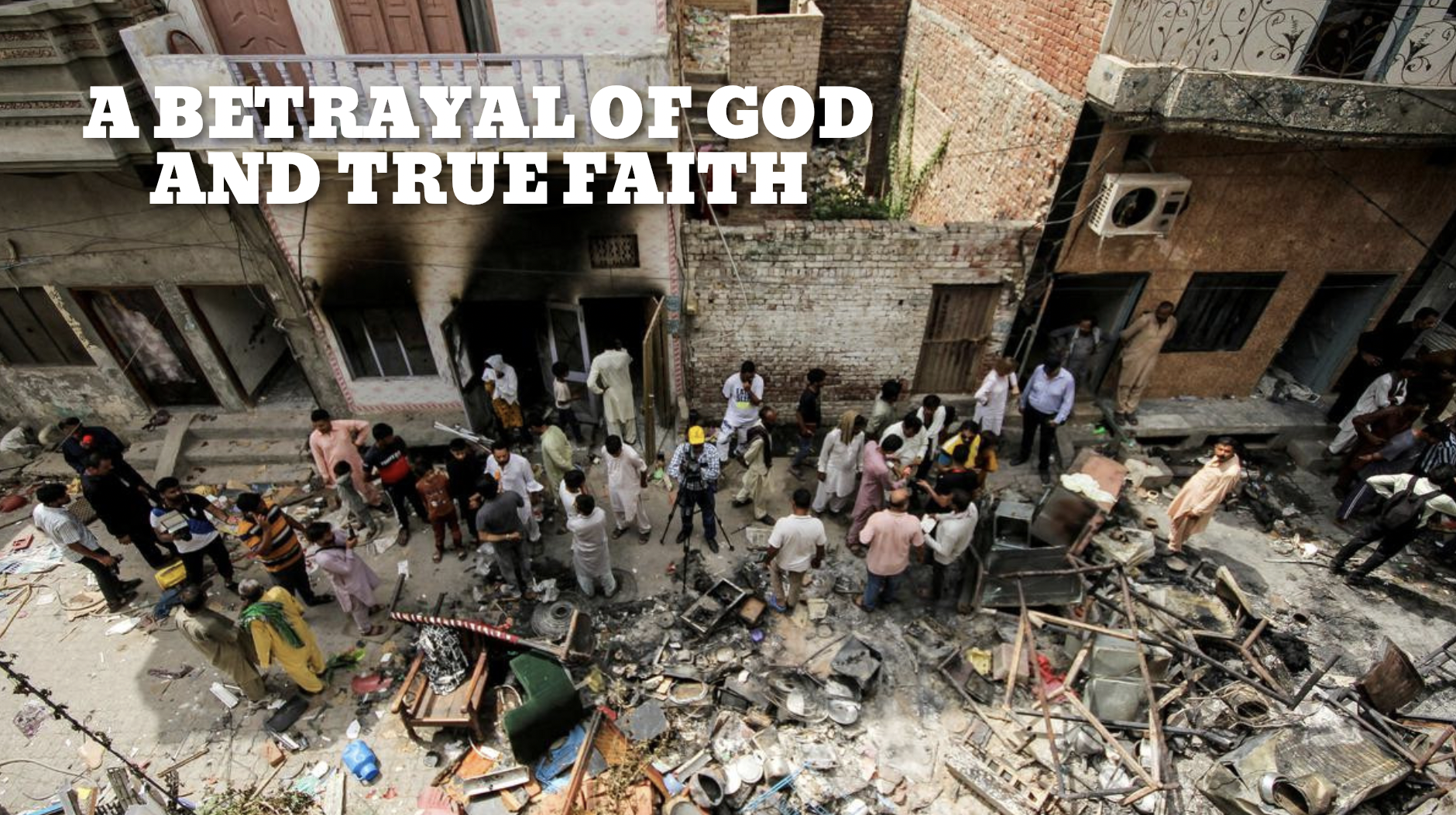A BETRAYAL OF GOD AND TRUE FAITH

Last month’s attack on the Prarthana Bhawan Church in New Delhi, paints a somber picture of the challenges that Christian faithful face in India, which is a predominantly Hindu country. But more worryingly, it is a stark reminder of the shameful phenomenon of religious violence that has marred human history.
The incident itself not as bad as it could have been, although it was shocking nonetheless. Parishioners at the Prarthana Bhawan Church had gathered for Sunday prayers, when they were attacked by a Hindu mob of at least 30 thugs wielding weapons. During the assault, several parishioners, including children, were severely injured. Jarringly, the incident occurred close to where an upcoming G20 summit, which will be attended by global leaders including President Joe Biden, is scheduled to be held.
As the rabbi of a Jewish community in California, which is very far away from India, I feel that we cannot ignore religious violence, wherever it occurs. All believers in a higher power, be they Jews, Christians, Muslims, or Hindus, should stand united against violence, for it is fundamentally against the teachings of our religious faiths.
The Talmud, a central text in Judaism that was written almost two millennia ago, consistently urges peace and harmony. In one place the Talmud declares, “Whoever saves a single life is as if they had saved the whole world” (Sanhedrin 37a). The Talmud doesn’t differentiate between the lives of Jews and the lives of Gentiles. All lives are precious, even the lives of those who do not profess the Jewish faith. Similarly, Halakha – Jewish law – promotes peace as a core value, evident in the blessing that ends so many of our prayers: “He who makes peace in His heavens, may He grant peace upon us.” These sentiments and prayers emphasize the idea that generating division and violence is not what God wants at all.
Sadly, practitioners of faith have often found that this is the hardest ideal to live up to. Throughout history, religious violence has brought immense suffering to humanity, without resolving any of the underlying issues that brought the violence about. The Crusades, waged over which religion controlled Jerusalem, spanned centuries and led to huge losses and tragic suffering by Christians and Muslims – and Jews, who were victimized by both sides.
The Spanish Inquisition persecuted thousands in the name of religion, but in the end achieved nothing. Modern extremist groups like ISIS and Al-Qaeda have brought devastation under the banner of faith, tainting the image of Islam – a religion whose name itself means “peace”. The sectarian violence in Northern Ireland between Catholics and Protestants that lasted a generation also reminds us that religious-based conflicts always create long-lasting scars.
As Jews, we have been at the receiving end of religious violence since time immemorial. Christians and Muslims – at different times and in different locations – used Jews as scapegoats, labeling them as heretics, which resulted in rape, pillage, and murder, and destroyed and uprooted Jewish life in many hundreds of communities. The object was to annihilate Jews and Judaism. Ultimately antisemitic violence failed, but that doesn’t mean it has stopped. On the contrary, violence against Jews is higher than it has been in decades.
All these examples highlight one thing: religious violence achieves only one thing – it brings shame to God and faith.
Modern times present a unique challenge. At a time when many are distancing themselves from religious institutions and God, believers carry a unique responsibility: to be ambassadors of hope and tolerance. Rather than sowing discord, faith communities should aim to be sanctuaries, and sources of solace and stability. Instead of alienating those of other faiths and those of no faith, we must heed the words of Rabbi Akiva from the Talmud: “You shall love your neighbor as yourself – this is a foundational principle of the Torah” (Shabbat 31a).
The escalation of religious polarization in India is concerning. If unchecked, it threatens the secular foundation of a nation celebrated for its diversity. As the world’s largest democracy, India holds a responsibility to protect its minorities, be they Christian, Muslim, or others.
Prime Minister Narendra Modi’s assurance at the White House that India has “absolutely no space for discrimination” is reassuring. However, actions speak louder than words. Swift and decisive action must be taken to curb religious extremism and protect the rights of all citizens.
Religion should uplift and enlighten. The faithful, irrespective of their faith, should be the standard-bearers of love, understanding, and unity. All faiths should be allowed to practice their faith without fear of violence or persecution, even if their faith beliefs run counter to the faith beliefs of others. As history has shown us, violence in the name of faith has never led to lasting peace or understanding, nor has it ever led to a deepening of faith. Instead, it breeds mistrust, prejudice, and division.
The resilience of the congregants at the Prarthana Bhawan Church exemplifies the enduring spirit of faith. Over the past weeks since the mob attacked their church, parishioners have continued to gather, pray, and seek solace despite the horror they faced. Their actions echo a sentiment shared by believers worldwide: God is love, God wants love.
In these trying times, faith communities should take the lead in fostering love and understanding. As the late Chief Rabbi of the United Kingdom, Jonathan Sacks, so eloquently stated: “The test of faith is whether I can make space for difference. Can I recognize God’s image in someone who is not in my image, whose language, faith, ideals, are different from mine? If I cannot, then I have made God in my image instead of allowing him to remake me in his.”
Let us strive to fill our world with that peace, embodying the true essence of our shared faiths.

